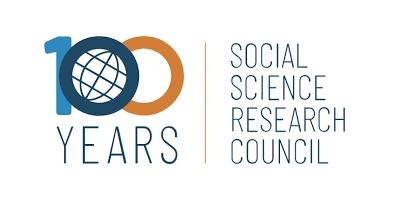 Rua Williams, assistant professor of user experience design in the Department of Computer Graphics Technology at Purdue University’s Polytechnic Institute, has been selected for the inaugural Just Tech Fellowship, a project of the Social Science Research Council (SSRC). According to its website, the fellowship “supports and mobilizes diverse and cross-sector cohorts of researchers and practitioners to imagine and create more just, equitable, and representative technological futures.”
Rua Williams, assistant professor of user experience design in the Department of Computer Graphics Technology at Purdue University’s Polytechnic Institute, has been selected for the inaugural Just Tech Fellowship, a project of the Social Science Research Council (SSRC). According to its website, the fellowship “supports and mobilizes diverse and cross-sector cohorts of researchers and practitioners to imagine and create more just, equitable, and representative technological futures.”
In a competitive field of 600 applicants, Williams earned their place as one of just six members of the first Just Tech cohort and will receive two one-year awards of $100,000 each, as well as supplementary funding for additional expenses and seed funding for projects in collaboration with other Just Tech Fellows.
“It is a model of transformation,” said Safiya Umoja Noble, 2021 MacArthur Fellow and Just Tech steering committee member in a recent SSRC article. “We are asking people who understand the consequences of a world reimagined by technology what they need to accelerate true positive impact.”
Williams’ fellowship will focus on their proposed research project, “Cyborg Coalitions: Organizing for the Right to Maintain and modify Adaptive Equipment.” They plan to work with assistive and adaptive equipment users, assistive and adaptive technology developers, and user-experience designers to explore alternative processes for bespoke equipment design, and will include co-design sessions with adaptive equipment users who find that their equipment does not meet their needs, specifically due to policy barriers in equipment acquisition and modification.
 Williams’ work will culminate in a public interest campaign that advocates for sweeping policy changes to reduce or even eliminate logistical, financial and medical barriers to life-changing equipment for disabled persons — especially disabled people of color living in high-risk climate areas.
Williams’ work will culminate in a public interest campaign that advocates for sweeping policy changes to reduce or even eliminate logistical, financial and medical barriers to life-changing equipment for disabled persons — especially disabled people of color living in high-risk climate areas.
“This fellowship gives me the resources and connections I need to engage deeply with one of the primary sources of technology injustice for disabled people — technology policy itself,” said Williams. “Disabled people often rely on technology to move, to communicate, to breathe and to survive. But access to life-sustaining technology often takes years, can be arbitrarily revoked, and is disproportionately made more difficult for poor, rural and BIPOC people.”
Ultimately, Williams believes that Cyborg Coalitions should fundamentally alter public perceptions of adaptive equipment and the people who use it, creating and encouraging the public to regard adaptive equipment as a human right for the good of all.
“Through this project,” added Williams, “I hope to expose specific policy barriers and begin targeted campaigns for reform that will improve technology access for disabled people and empower a sense of bodily autonomy for disabled people that rely on technology to live.”
Additional information
- Just Tech Fellowship (Social Science Research Council)
- Introducing the 2022 Just Tech Fellows (Social Science Research Council)
